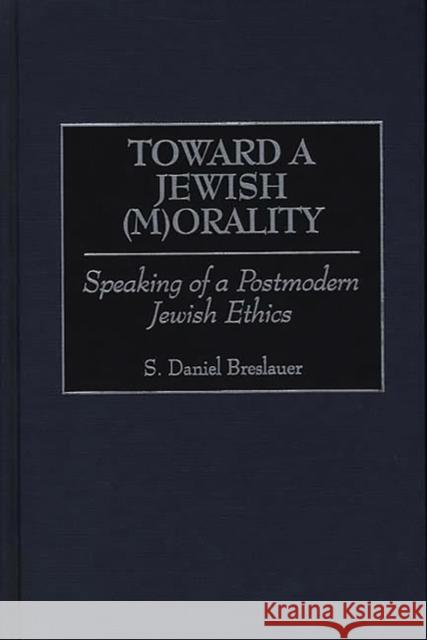Toward a Jewish (M)Orality: Speaking of a Postmodern Jewish Ethics » książka
Toward a Jewish (M)Orality: Speaking of a Postmodern Jewish Ethics
ISBN-13: 9780313306037 / Angielski / Twarda / 1998 / 184 str.
Moving the focus away from the exposition of one particular thinker, this unique book offers a constructive, postmodern approach to contemporary Jewish thinking combined with analysis of modern Jewish thought, reflections on Jewish law, mysticism, history, and theology. This exploration of postmodernism in Judaism and its relevance as a moral standard concentrates on three basic elements in postmodernism: attention to Other, using the text as a prism for generating alternate realities, and recognition of the impossibility of absolute knowledge. While guarding against Jewish dogmatism, this approach simultaneously stimulates Jewish creativity. Modern and postmodern approaches to Judaism that are examined include those of Leo Baeck, Martin Buber, Hermann Cohen, Jacques Derrida, Emmanuel Levinas, and Franz Rosenzweig. Recent contributions include thinkers such as Eugene B. Borowitz, J. David Bleich, David Novak, and Edith Wischograd.
The varied chapters in the book will appeal to a diverse scholarly audience. Jewish scholars and people interested in modern Jewish thought will appreciate the range of concerns addressed in the text. The book assumes that readers have little knowledge of either Judaism or postmodernism so these terms are explained, which make the work accessible to the ordinary reader. The book challenges the modernism of mainstream contemporary Jewish ethics, therefore, all readers will learn to acknowledge the influence and value of the emerging postmodern approach to Jewish moral thought.











